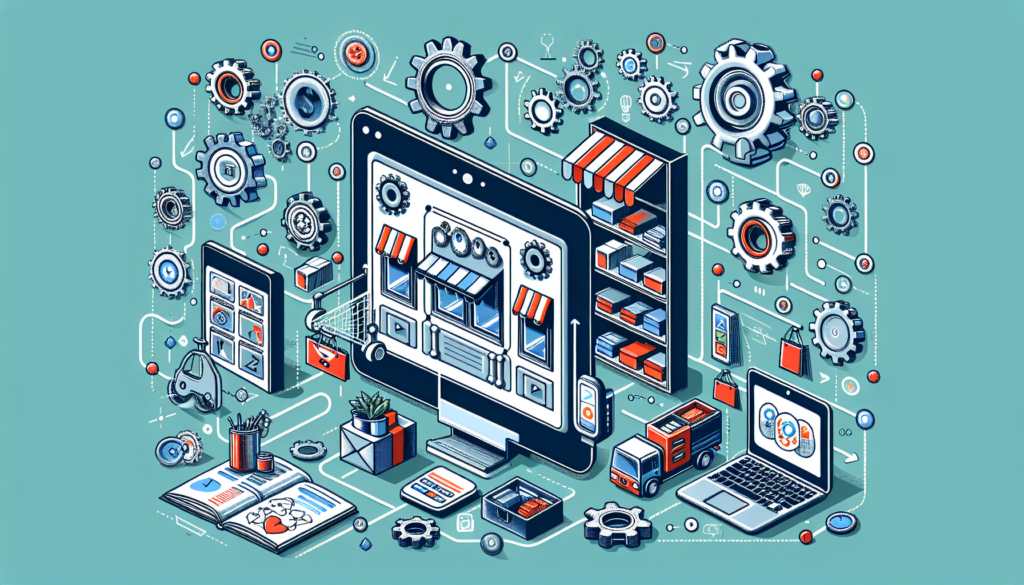In the dizzying evolution of digital commerce, the integration of automation tools has become a critical pillar for improving operational efficiency, optimizing customer experience, and increasing profitability. Emerging technologies and advancements in artificial intelligence, machine learning, and data management enable e-commerce businesses to implement increasingly sophisticated and effective automation strategies. This article delves into the application of these tools, providing insights about recent advancements and practical applications, while projecting future innovations in the sector.
Digital Marketing Automation
Digital marketing automation systems have revolutionized the way e-commerce businesses interact with their audience. Through marketing automation, companies can personalize mass communication, accurately segment audiences, and execute email marketing campaigns, social media advertising, and retargeting with unprecedented efficiency.
Personalized Email Marketing
Personalization in email has been magnified with the use of AI algorithms that analyze consumer behavior. Automation platforms can now predict which products might interest each customer, optimizing open rates and conversion rates of email campaigns.
Programmatic Advertising and Retargeting
Programmatic advertising uses advanced algorithms to automatically buy advertising space in real time, targeting ads to specific audiences based on their online behavior. Retargeting, on the other hand, targets users who have already interacted with the brand, increasing the likelihood of conversion.
Automated Inventory and Supply Chain Management
Inventory automation uses sophisticated tracking systems to maintain the optimal amount of stock, reduce excess inventory, and prevent stockouts. Machine learning algorithms predict future demand, automatically adjusting purchase orders and product replenishment.
Logistics Optimization
Advanced logistics management systems enable real-time delivery route optimization and automatic assignment of shipments to different carriers based on factors such as cost, delivery time, and reliability, improving customer experience and operational efficiency.
Enhanced Customer Service with Chatbots and AI
Artificial intelligence-based chatbots bring an expansion in customer service capacity, providing instantaneous and personalized responses 24/7. The integration of these with internal databases allows not only general answers but also resolving specific customer problems based on their purchase history and preferences.
Predictive Analysis of Customer Needs
Predictive analysis uses historical data and behavior patterns to anticipate future actions or needs of customers. This level of understanding helps to personalize the shopping experience and provide proactive service, improving customer satisfaction and loyalty.
Payment Process and Fraud Prevention Optimization
Automation in payment processes is key to a smooth purchasing experience. Payment verification and authorization tools work in real-time to minimize cart abandonment. Advanced anti-fraud systems leverage big data to identify and prevent suspicious transactions automatically.
Frictionless Payment
Innovations in payment technologies, such as digital wallets and one-click payments, use automation to securely store user payment information and complete transactions more quickly and securely.
Case Study: Omnichannel Marketing Optimization
A fashion e-commerce business implemented an automation system that integrates the online and offline behavior of its customers to send highly personalized marketing messages. Using machine learning, the company improved its key performance indicators (KPIs) by increasing the conversion rate by 30% and reducing the cost of customer acquisition by 25%.
Looking Towards the Future
Looking ahead, the integration of new technologies such as the Internet of Things (IoT) in e-commerce promises to take automation to new horizons. The possibility of connected devices automatically placing orders when they detect the need for product replenishment is one of the many innovations on the horizon.
In conclusion, automation in e-commerce is no longer an option but a necessity to stay competitive in a global market. The key to effective integration lies in understanding the specific needs of the business and selecting the right tools that can adapt and scale along with the company. As we move towards even deeper digitalization, those businesses that manage to capitalize on advances in automation and artificial intelligence will position themselves at the forefront of innovation and commercial success.

